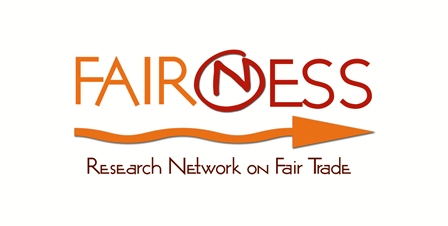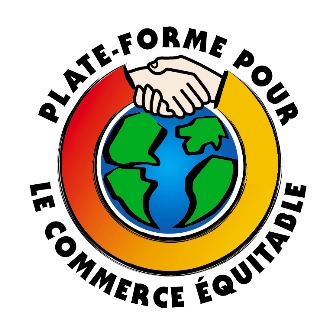What is called Fair Trade (FT) has two main objectives. First, Fair Trade Organizations (FTOs) develop alternative marketing chains that aim to improve the well-being of small producers in poor countries by offering them better trading conditions than through conventional systems. Second, FTOs, among others, also carry out advocacy campaigns for changes in the rules and practices of conventional international trade. Over the last three decades, the management and organization of FT marketing chains have grown and become prominent. In practice, FTOs have gradually adopted objectives and means similar to those of donors and thus seek to promote the development of the poorest people in the world by providing them with means to improve their livelihoods.
The role for FT in development is recognized by most European donors and governments. In 2006, the European Parliament adopted a resolution recognizing FT as “a major instrument for achieving the Millennium Development Goals”. In France, the Ministry of Foreign Affairs has financed FTOs from 2003 to 2007 via a Priority Solidarity Fund, which allowed to support various actors in the North, especially in their promotion of FT, and to develop FT chains in the South. After its completion in 2007, support to FT was transferred to the Agence Française de Développement (AFD), which continues to support actors in the North (by signing a partnership agreement with the French Platform for FT), and the development of FT projects in the South.
Despite these activities, the legitimacy, amount, and modalities of the support given by Official Development Aid (ODA) to FT are much debated. Most impact evaluations show that FT contributes to development, and should thus be considered as an instrument of ODA, while others underline that cost-benefit analyses of FT are negative, and that it would be more efficient to use FT channels to transfer consumers’ willingness to pay for FT directly to producers. More nuanced points of view acknowledge the difficulties of FT, but attribute them to the lack of market access that could be alleviated by ODA support to promotion and communication activities in the North. Finally, some observers emphasize that other socially responsible or quality-labels are more likely to improve producers’ livelihoods, and suggest that FT should be redesigned to become a more effective aid-for-trade instrument to help producers, for example in their quest for quality upgrading.
Based on the latest research results and with the participation of FT practitioners, this conference organized by Ferdi in partnership with the French Fair Trade Platform and FairNESS aims to identify the best options for the future of FT as a development tool. The conference is part of the Fair Trade Weeks (from 12 to 17 May 2012), and will mark the official launch of the Dictionary of Fair Trade of FairNESS France, the French network of researchers on Fair and Alternative Trade.
14h – 14h15 Introduction /
Introduction
Patrick Guillaumont & Georges D’Andlau 14h15 – 15h45 Le commerce équitable : un outil de développement efficace ? / Is Fair Trade an efficient development tool ?
Modérateur/ Chair : Jaime de Melo
- Isabelle Vagneron : L’impact du commerce équitable/ The impact of Fair Trade
- Alain de Janvry: L’efficacité du commerce équitable: l'exemple du café équitable en Amérique Centrale/ The efficiency of Fair Trade: the example of Fairtrade coffee in Central America
- Ruerd Ruben : Bilan du commerce équitable : leçons et défis après 25 ans d’expérience / The Fair Trade balance: Lessons and Challenges after 25 years of Fair Trade 16h15 – 17h45 Le futur du commerce équitable : défis et perspectives /
The future of Fair Trade : challenges and options
Modérateur/ Chair : Julie Stoll
- Gaëlle Balineau : Le commerce équitable : de « Trade, not aid ! » à « Aid-for-trade » ? / Fair Trade : from « Trade, not Aid ! » to « Aid-for-trade » ?
- Amina Béji-Bécheur : Que nous enseignent les études de consommateurs sur la capacité du commerce équitable à être un outil de développement ? / What consumers’ studies tell us about the ability of Fair Trade to be a developement tool ?
- Jean-René Cuzon : Commerce équitable : Diagnostic, expérience et position de l’AFD / Fair Trade : the AFD’s diagnosis, experience, and choices 18h – 18h30 Conclusion et lancement du « Dictionnaire du Commerce Equitable » de FairNESS/
Conclusion and launch of the « Fair Trade Dictionary » of FairNESS
- Benjamin Huybrechts : Présentation de FairNESS/ Presentation of FairNESS
- Vivien Blanchet & Aurélie Carimentrand : Lancement du Dictionnaire / Launch of the Dictionary
Fairness is an international network bringing together academics working on subjects associated with Fair and Ethical Trade. It is composed of two branches: Fairness FR and Fairness UK. Fairness FR was set up after the 2nd Fair Trade International Symposium (Montreal 2006) and gathers around 30 young scholars from France, Belgium, Canada and Switzerland. It is currently chaired by Benjamin Huybrechts and has been involved in the organization of the Montpellier 2008 and Liverpool 2012 FTIS conferences. Fairness UK was set up by Alastair Smith in 2009 and gathers 160 members from various parts of the world. Besides organizing conferences, sponsoring publications and fostering collaboration among scholars, both Fairness branches have developed a Knowledge Exchange function together with practitioners, policy makers and funders working in the area of Fair Trade. The intention is to provide better connections between the worlds of research and practice: to make the former more relevant to real world needs and to help the latter access academic knowledge that might otherwise not be available. Both groups have an extensive mailing list and the UK network offers a regular newsletter with summaries of relevant academic publications, news and events. Both networks have also developed websites (http://www.fairness.on-web.fr and http://fairnessuk.ning.com) where members can interact and share knowledge. The ambition of Fairness is to expand internationally while remaining locally anchored so as to grasp both the macro and grassroots evolutions of Fair Trade.
Website : http://www.fairness.on-web.fr
The Platform for Fair Trade (PFT) is the leading French collective for dialogue and representation in this sector. The PFT works to develop an institutional framework conducive to the development of fair trade approach. The association also acts as a resource and study center. It develops advanced expertise on issues related to fair trade impact and provides a strategic monitoring of fair trade’s guarantee systems.
Website : http://www.commercequitable.org/

